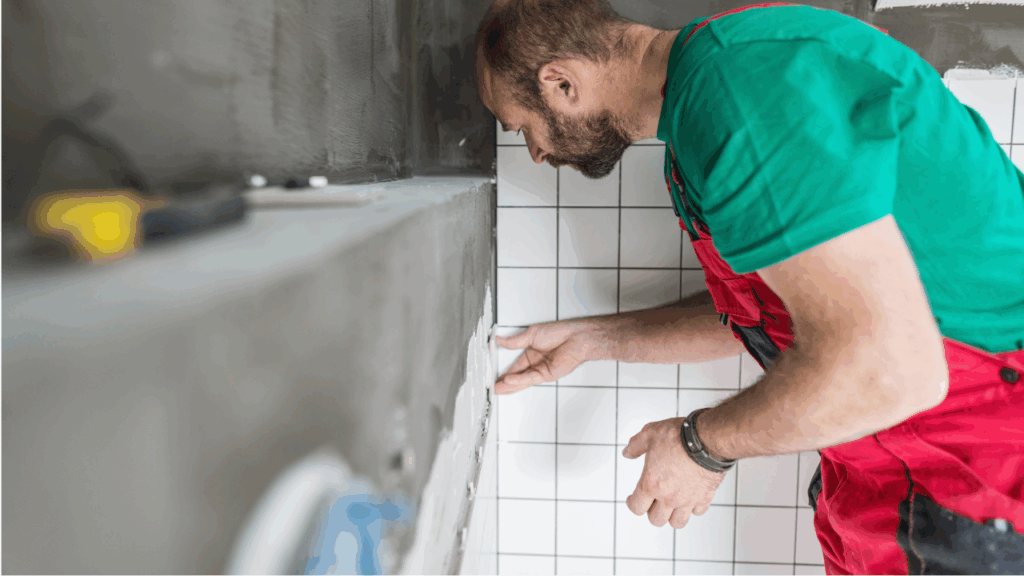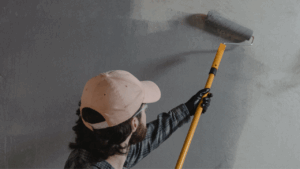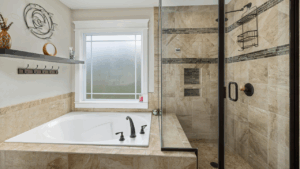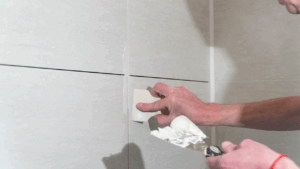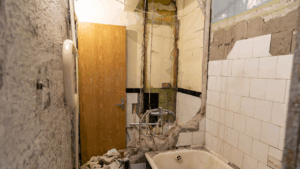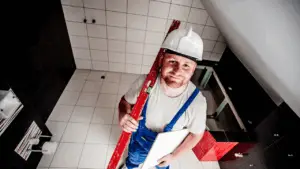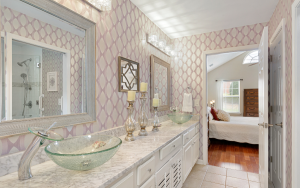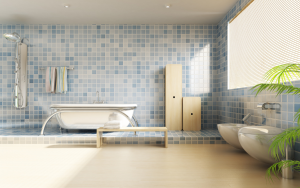Why Should I Waterproof My Shower?
You might be thinking, “Do I really need to waterproof my shower?” The answer is absolutely—yes.
Without a reliable waterproofing system, water can seep into the walls and floors, leading to: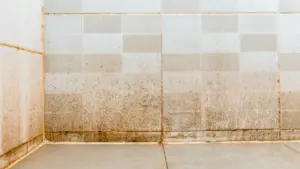
Costly structural damage
Mold growth that affects your health
Ruined tiles and finishes
A proper seal helps protect my bathroom walls and keeps my home safe and clean.
What Makes a Waterproofing System Last?
Not all systems are created equal. What I’ve found to be most important for durability includes: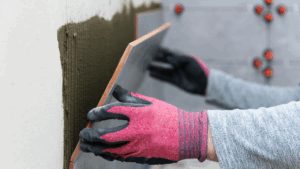
Quality materials like high-grade membranes and adhesives
Professional installation that avoids gaps or shortcuts
Moisture resistance tailored to your bathroom’s humidity level
You want a system that can truly stop water damage in the shower long term.
System #1: Liquid Waterproof Membrane
Liquid membranes are one of the most common systems used today.
What is It?
A brush-on or roll-on solution that creates a seamless, rubber-like layer on your walls and floors.
Great for uneven surfaces
Easy to apply in tricky areas
Pros and Cons
Pros:
Flexible
Fewer seams = fewer leak points
Works well with irregular shapes
Cons:
Can be tricky to apply evenly
Requires curing time
Liquid membranes are ideal when I want to waterproof my shower with minimal seams.
System #2: Sheet Membrane Waterproofing
Sheet membranes offer a highly durable and consistent barrier.
How Does It Work?
These pre-fabricated sheets are adhered to the shower surface using mortar or glue.
Very tear-resistant
Excellent for high-traffic showers
Why I Like It
Offers one of the most long-lasting shower seals
Reduces risk of leaks
Easier to inspect during installation
If I’m remodeling or upgrading a shower, this is one of the best waterproof barriers to install.
System #3: Foam Board Waterproofing Panels
Looking for something lightweight and fast? Foam boards might be for you.
What Are They?
Rigid foam panels with a waterproof coating that fit together to form the shower walls.
Easy for pros to cut and shape
Fast to install
Key Benefits
Excellent thermal insulation
Integrated waterproofing
Less mess than liquid systems
This is the route I’d take when upgrading shower sealant in modern renovations.
How Do I Choose the Right System for My Bathroom?
Picking the best solution depends on a few things:
Shower usage: Daily use? Go durable.
Budget: Liquid systems are cheaper upfront.
Age of home: Older homes may need extra sealing in corners and seams.
If I had a busy household and wanted a long-term fix, I’d lean toward sheet or foam systems.
Common Shower Waterproofing Mistakes I Should Avoid
Not sealing joints and corners properly
Skipping the curb or threshold
Using the wrong materials for high-moisture areas
Fixing shower leaks after the fact is way more expensive. Trust me, I’ve seen the bills.
How Do Professionals Waterproof a Shower?
If I hire a professional, here’s what I can expect:
Remove old materials and prep the surface
Install backer boards or foam panels
Apply membrane or waterproof coatings
Seal corners and fixtures
Test for leaks before tiling
Their precision is key to achieving a leak-proof shower.
How Long Do Shower Waterproofing Systems Really Last?
Liquid membrane: 5–10 years
Sheet membrane: 10–25 years
Foam panels: 15–30 years
Maintenance and proper sealing extend the life. If I install waterproof membrane properly and keep an eye on wear, it’ll last even longer.
DIY vs. Professional Services
Sure, I could try to waterproof my shower myself—but here’s the truth:
DIY Risks: Missed spots, improper sealing, expensive redo
Professional Perks: Warranty, peace of mind, long-term savings
A leak-proof shower isn’t something I want to gamble on.
Testimonials
“I’m blown away by the results! Quick, efficient, and exceeded all my expectations.” — Alex G., Chicago, IL
“They made everything so easy! I saved time, effort, and stress. Highly recommend!” — Taylor M., Denver, CO
“I can’t stop telling everyone about this! It was the best choice I made all year.” — Jamie P., Seattle, WA
Did You Know?
Did you know that a single unsealed shower corner can leak over 5 gallons of water a day into your walls?
TL;DR Summary
Waterproofing your shower prevents mold, damage, and costly repairs
Liquid, sheet, and foam systems all have pros and cons
Foam panels last the longest, but cost more
Hiring a professional ensures long-term protection
Avoid common mistakes like unsealed seams or cheap materials
FAQs
What’s the best waterproofing system for old showers?
Sheet membranes work well in older showers because they offer strong, consistent protection and adapt to uneven surfaces.
Can I waterproof my shower myself?
Yes, but it’s risky. A single mistake can lead to mold or structural damage. Professionals offer warranties and expert results.
How long does a professional waterproof job last?
A professionally installed system can last anywhere from 10 to 30 years depending on the method and maintenance.
Is liquid membrane better than sheet membrane?
Liquid membrane is flexible and cheaper, but sheet membrane is stronger and more durable for high-traffic areas.
Do I need to waterproof behind tiles?
Absolutely. Tiles are not waterproof—water seeps through grout and cracks. A proper waterproof system behind tiles is essential.


